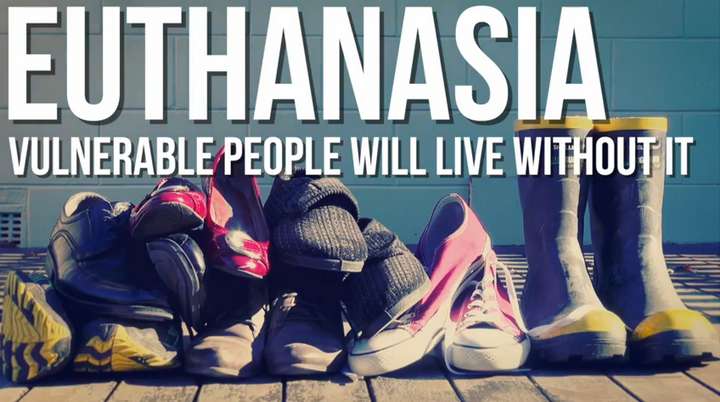David Seymour Concedes Opponents’ Euthanasia Concerns Are Correct
 ACT MP David Seymour’s significant backdowns on his assisted suicide bill, and that this indicates just how weak and flawed the bill is.
ACT MP David Seymour’s significant backdowns on his assisted suicide bill, and that this indicates just how weak and flawed the bill is.
The backdowns are certainly in contrast to his earlier attacks on our justified concerns, including his statements that There’s just so much scaremongering that doesn’t stand up to evidence and One of the biggest obstacles are MPs who are not in touch with their electorates…and also MPs who may have been coloured by some of the scare-mongering from the other side. There was never any ‘scaremongering’. There was – and continues to be – opposition to this bill based on credible research internationally in jurisdictions that have euthanasia available, and from medical professionals in New Zealand who know the effect such a law would have on their work and on society.
Even if the bill was limited to just the terminally ill, some people will be euthanised on account of a disease they thought they had but did not. Prognosis is an uncertain procedure. Many people know or have heard of a person who, having been given a pessimistic prognosis, has lived for many years to tell the tale. There will be those who decide for euthanasia on the basis of an unduly pessimistic prognosis. There is also concrete evidence from those countries which have authorised euthanasia that the availability and application of euthanasia expands to situations never initially envisaged as indications for it.
There has been overwhelming opposition to David Seymour’s assisted suicide bill by submitters to the Select Committee. According to an analysis of a substantial number of the submissions by the Care Alliance, a whopping 92% of submissions are against David Seymour’s bill, and is significantly higher than the already-high 77% opposition during the Health Select Committee’s earlier investigation.
The promotion of assisted suicide is a message that will be heard not just by those with a terminal illness but also by anyone tempted to think he or she can no longer cope with their suffering – whatever the nature of that suffering. This is the real risk to young and to vulnerable people, the disabled and elderly people if NZ follows the path of promoting – and allowing – assisted suicide.
The latest statements by David Seymour should be an indication to politicians that they should give New Zealanders a real Christmas present and move on from the current political push for assisted suicide, and focus on what New Zealanders really need and want – a focus on providing the very best palliative care and support for vulnerable people, whether they are at the end of their life, or momentarily wishing they were at the end of their life.






